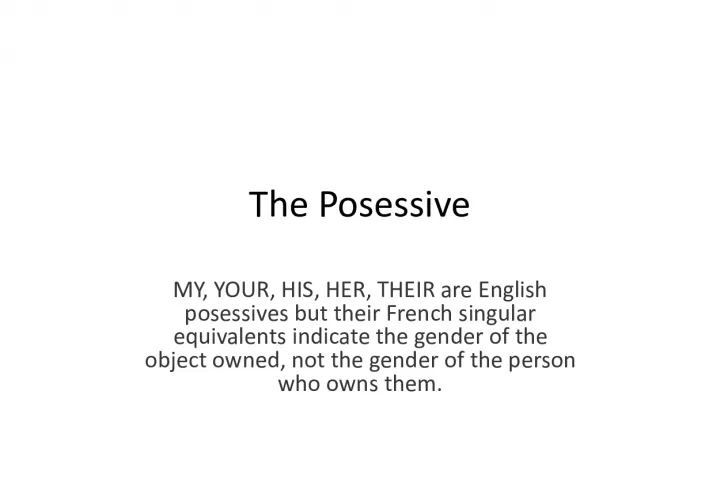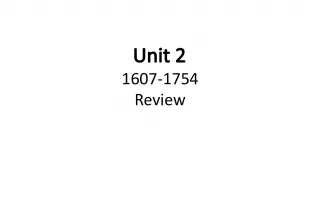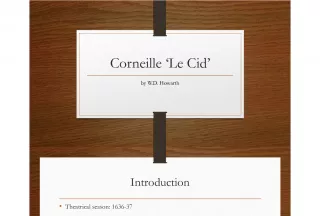Understanding Possessives in English and French


Learn about the differences between English and French possessives, particularly how the gender of the object owned is indicated in French singular equivalents. Additionally, the article discusses how pluralization works in French.
- Uploaded on | 0 Views
-
 bonnuci
bonnuci
About Understanding Possessives in English and French
PowerPoint presentation about 'Understanding Possessives in English and French'. This presentation describes the topic on Learn about the differences between English and French possessives, particularly how the gender of the object owned is indicated in French singular equivalents. Additionally, the article discusses how pluralization works in French.. The key topics included in this slideshow are possessives, English, French, gender, pluralization,. Download this presentation absolutely free.
Presentation Transcript
1. The Posessive MY, YOUR, HIS, HER, THEIR are English posessives but their French singular equivalents indicate the gender of the object owned, not the gender of the person who owns them.
2. There is only one form of my in English for singular and plural, but In French a car is feminine: Une voiture so I say ma voiture Un frre (a brother) is masculine so I say mon frre BUT if I have several cars, or several brothers I say mes voitures and mes frres. Note the Presence of an s to pluralize most nouns.
3. Tu or Vous? If I know the people well, or if I am related to them, I use tu, so I use ta voiture, ton frre, tes amis / tes amies (your friends, males or females) If I dont know people well I say vous whether there is one, or several people, so I use votre for a single object, vos for several
4. HIS / HER In English you think of the gender of an objects owner to express posession In French you think of the gender of the object itself and every single object has a gender that you must learn with the noun itself Pauls car, his car is la voiture de Paul, sa voiture Maries brother, her brother is le frre de Marie, son frre
5. Their: Leur / Leurs In French if a couple owns one car it will be leur(their) voiture. They will say notre voiture (our car) But if they own two cars it will be leurs (their cars) voitures. They will say nos voitures (our cars) Speaking to them, I will tell the first couple votre voiture est jolie, but the second couple vos voitures sont jolies Note the verb and the adjectives in the plural in the second case.























